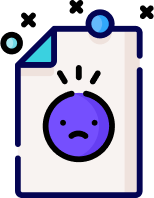Game development offers a unique and multifaceted learning
experience that extends beyond just creating games. Here are some of the key
things you can learn from game development:
- Programming
Skills: Game development often involves coding in languages such as C++,
C#, Java, or Python. This can help you develop proficiency in programming
and software development.
- Problem-Solving:
Game development requires you to solve complex problems related to game
mechanics, user interaction, and performance optimization, fostering
strong problem-solving skills.
- Mathematics
and Physics: Game development often involves mathematical concepts such as
geometry, trigonometry, and physics simulations for realistic game
mechanics, providing practical application of these subjects.
- Art
and Design: Creating game assets, animations, and visual effects can help
you develop skills in graphic design, 3D modeling, animation, and digital
art.
- Team
Collaboration: Game development often involves working in
multidisciplinary teams, providing opportunities to learn how to
collaborate with artists, designers, sound engineers, and other
professionals.
- Project
Management: Game development projects require planning, organization, and
time management skills, providing valuable experience in project
management.
- User
Experience (UX) and User Interface (UI) Design: Game development teaches
you how to create engaging and intuitive user experiences, which can be
applied to various software and web development projects.
- Storytelling
and Narrative Design: Developing games involves crafting compelling
narratives and engaging storytelling, which can be valuable for content
creation in various media.
- Marketing
and Business Skills: Understanding the game industry requires knowledge of
marketing, business models, and monetization strategies, providing insights
into entrepreneurship and business development.
- Innovation
and Creativity: Game development encourages creative thinking, innovation,
and experimentation, fostering a mindset of continuous learning and
exploration.
- Adaptability
and Technology Trends: Game development exposes you to evolving
technologies and trends, requiring you to adapt to new tools, platforms,
and industry standards.
- Community
Engagement: Game development often involves engaging with a community of
players, providing insights into community management, feedback analysis,
and user engagement strategies.
Overall, game development offers a rich learning experience
that encompasses technical, artistic, and business-related skills, making it a
valuable and multidimensional field for personal and professional growth
Module 1: Introduction to Game Development
- Overview
of Game Development
- Introduction
to the game development process
- Overview
of the gaming industry and trends
- Game
Genres and Platforms
- Exploring
different game genres
- Understanding
platforms (PC, console, mobile)
- Introduction
to Game Design
- Basic
principles of game design
- Creating
game concepts and documentation
Module 2: Game Design and Storytelling
- Game
Mechanics and Dynamics
- Understanding
game mechanics
- Designing
engaging gameplay experiences
- Narrative
Design
- Storytelling
techniques in games
- Creating
compelling characters and plotlines
- User
Interface (UI) and User Experience (UX) Design
- Designing
intuitive and user-friendly interfaces
- User
flow and interaction design in games
Module 3: Game Art and Animation
- 2D
and 3D Art Fundamentals
- Basics
of digital art and graphics
- Introduction
to 3D modeling and animation
- Texturing
and Shading
- Creating
textures for game assets
- Implementing
shading techniques
- Character
and Environment Design
- Designing
characters and game environments
- Balancing
aesthetics and functionality
Module 4: Game Programming
- Introduction
to Game Engines
- Overview
of popular game engines (Unity, Unreal Engine)
- Choosing
the right engine for a project
- Programming
Fundamentals for Games
- Basics
of game programming languages (C#, C++, etc.)
- Scripting
in a game engine environment
- Physics
and Artificial Intelligence (AI) in Games
- Implementing
realistic physics in games
- Designing
and implementing game AI
Module 5: Game Development Tools and Middleware
- Version
Control and Collaboration
- Using
version control systems (e.g., Git)
- Collaborative
game development tools
- Asset
Management and Integration
- Managing
game assets efficiently
- Integrating
third-party tools and plugins
Module 6: Multiplatform Game Development
- Cross-Platform
Development
- Developing
games for multiple platforms
- Strategies
for optimizing games across devices
- Mobile
Game Development
- Designing
games for mobile platforms
- Considerations
for touch controls and mobile interfaces
Module 7: Monetization and Game Business
- Monetization
Strategies
- In-app
purchases, ads, and subscription models
- Exploring
different revenue streams
- Marketing
and Publishing Games
- Strategies
for marketing games
- Navigating
the game publishing process
Module 8: Game Testing and Quality Assurance
- Testing
Strategies for Games
- Creating
effective test plans
- Implementing
quality assurance in game development
- User
Feedback and Iterative Design
- Collecting
and analyzing user feedback
- Implementing
iterative design processes
Module 9: Final Project and Portfolio
- Game
Development Capstone Project
- Design
and implement a complete game
- Showcase
the project in a portfolio
Additional Considerations:
- Mentorship
and Support
- Provide
mentorship sessions and support for students throughout the course.
- Soft
Skills and Professional Development
- Incorporate
sessions on soft skills, teamwork, and effective communication.
- Career
Guidance
- Offer
career guidance, resume workshops, and interview preparation.



